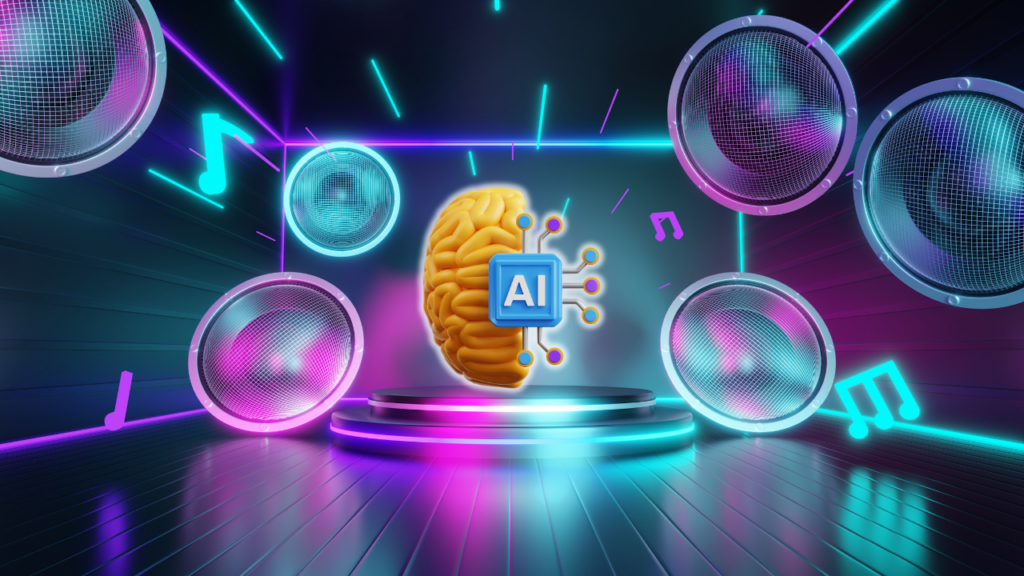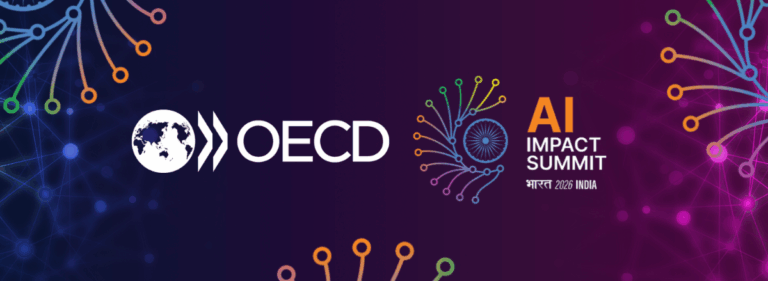In tune with ethics: Responsible artificial intelligence and the music industry

Every day, we hear news about artificial intelligence’s rapid advancements, which bring immense opportunities and significant risks. The future promises wonders or widespread adversity, from the luxury of automating mundane tasks to the fear of job losses. This dichotomy reflects the complex feelings shaped by our experiences in modern society.
Throughout history, music and, in modern times, the music industry is where human creativity and expression have flourished. Going mainstream in recent years but with roots in the mid-twentieth century, some view artificial intelligence as a menace to expression and creativity. In contrast, others see it as an excellent opportunity for growth and expansion in these areas.
Just as 2022 was marked by developments in artificial intelligence in visual communication, 2023 witnessed the impact of AI in the field of music. Generative AI, one of the most intriguing outcomes of artificial intelligence, not only analyses and processes existing music content within the music industry but can also create new, original pieces. This ability to generate new music offers replication and modification and the capacity to create from scratch, manifesting in various forms, such as creating background music for the industry, offering ideas to composers, or producing full-fledged pieces.
In the middle of 2023, the music world witnessed artificial intelligence’s capabilities in music production through a piece titled “Heart on My Sleeve,” created by a producer known as Ghostwriter using Drake’s songs and voice. Whether the issue would have been as sensational if a less popular artist had been used for AI-generated music is uncertain. Still, it demonstrated what AI is capable of in the music industry.
Shortly after, at the request of Universal Music, the track was removed from digital music platforms. Shortly after that, Google announced MusicLM, an application that generates music from any command or text. The same year, Paul McCartney used artificial intelligence to use John Lennon’s voice in a new Beatles track. While the music industry began debating the unauthorised use of song catalogues for AI training, the artist Grimes announced she would allow her voice to be used in user-generated songs under the condition that copyright royalties be split equally. At the same time, Meta announced an open-source AI music application called MusicGen, beginning a series of new music applications.
The intersection of music and artificial intelligence
The rapid advancement of AI in music presents a double-edged sword. On the one hand, it offers exciting possibilities like song generators and automated music organisation tools. However, this progress also raises concerns regarding potential job displacement for musicians, ethical issues surrounding data usage, and AI’s impact on the intrinsic value of human artistry. As musicians navigate this complex landscape, they face the challenge of integrating AI into their work while safeguarding their livelihoods. Exploring AI’s ethical and creative potential in music can help navigate this new frontier and ensure its responsible and beneficial integration in the artistic realm.
AI’s growth in the global music industry is notable. Innovations range from tools automatically sorting your music samples to easy-to-use music creation software for amateurs to technologies replicating existing artists’ styles. The development and funding of these technologies come from a mix of entities, including small independent startups, large technology companies, and venture capital firms. Meanwhile, record labels are caught in a dual effort to combat and adapt to AI. The transparency and ethics around how these technologies use and credit the music data they’ve been trained on and how they compensate artists remain murky legal issues.
As AI-driven music platforms become more prevalent and advanced, musicians are left to ponder whether and how to incorporate these tools into their work, questioning the future of their careers and the value of human creativity. Understandably, there are concerns about the potential devaluation of human artistry and the ethical implications of employing algorithms for music creation. Yet, within these concerns, there’s an untapped potential for artistic innovation. The challenge lies in harnessing AI’s capabilities creatively and ethically, necessitating a guiding ethical framework.
AI ethics in the music industry
A practical ethical framework for the intersection of music and AI would need to be adaptable enough to cover a wide range of applications and the ever-changing technological, legal, economic, and societal environments. Ethical considerations must evolve in response to the fast-paced AI industry, ambiguous legal standards, forthcoming regulations, the volatile music industry, and the pressures on the workforce. External factors like technological advancements, legal actions, corporate mergers, shareholder interests, online trolls, and social media disputes can significantly shift the context, necessitating a flexible approach to ethical decision-making.
Understanding what an ethical framework should avoid is as critical as knowing what it should include. Technology ethics experts warn against treating such a framework merely as a target to hit or a checklist to complete. Instead, ethics should be seen as an ongoing activity, not a static object.
A framework that is too vague can be difficult to apply. Equally, it’s crucial to avoid oversimplifying complex issues into mere bullet points, failing to acknowledge real-world impact adequately. Such oversimplification can lead to moral blindness—the failure to recognise the ethical dimensions of decisions—and moral disengagement, where one convinces oneself that ethical norms are not applicable in certain situations. Examples of this oversimplification include using euphemisms like “loss of work” or “legal trouble” to downplay serious issues. While it might be more comfortable to overlook the depth and breadth of potential consequences, it’s essential to confront the full extent and seriousness of the outcomes, even if it’s unsettling.
Ethical guidelines for the global music industry
My analysis delves into the ethical landscape of artificial intelligence in the music industry by examining nine ethical guidelines developed from 2018 to 2023, in light of the OECD’s AI Principles. These guidelines span various initiatives and campaigns, reflecting the music industry’s evolving engagement with AI technologies. These are, from past to present, Ethical Dimensions of Music Information Retrieval Technology (2018), Ethics Guidelines in Music Information Retrieval (2019), Human Artistry Campaign (2023), How ASCAP Is Helping Music Creators Navigate AI (2023), UK Music Policy Position Paper on Artificial Intelligence (2023), Global Creators and Performers Demand Creative Rights in AI Proliferation (2023), YouTube: Our principles for partnering with the music industry on AI technology (2023), IMPF Ethical Guidelines on generative Artificial Intelligence (2023). Despite the diversity of these documents, common themes such as transparency, human-centred values, fairness, and privacy have emerged as central ethical considerations, with transparency and human-centred values being particularly prominent across the guidelines.
Transparency is highlighted in all but one set of guidelines (specifically, YouTube’s), underscoring its critical role in deploying AI within the music sector. The call for transparency is driven by the increasing reliance on AI for tasks ranging from music curation and recommendation to composition. Such transparency involves the clear disclosure of AI algorithms’ decision-making processes, data sources, and potential biases. This builds trust among musicians and audiences and empowers artists to understand and potentially guide the creative processes influenced by AI. Furthermore, transparency is crucial in preventing biases that could affect musical preferences’ diverse and subjective landscape, thereby ensuring that AI technologies do not inadvertently undermine the richness of musical expression.
“Human-centred values”, almost as widely endorsed as transparency, appear in all the guidelines except for the 2019 Ethics Guidelines in Music Information Retrieval. Integrating AI into music creation prompts critical reflections on preserving human creativity and values within this technologically advanced context. As AI’s role in music evolves, maintaining the primacy of human creativity becomes essential. Ethical considerations must navigate the fine line between AI as a tool for enhancing human creativity and AI as an autonomous creator. Establishing criteria to differentiate between these uses is vital for copyright integrity and ensuring that the unique contributions of human intellect, skill, labour, and judgment are valued. Moreover, AI-generated content should have clear labelling to maintain consumer transparency and safeguard recognition and rewards for human creators. This emphasises the importance of human authenticity, identity, and cultural significance, even as the industry explores AI’s transformative potential.
Sustainability is missing from the mix
However, a notable gap in the ethical frameworks reviewed is the lack of consideration for sustainable development and the environmental impact of AI in music. This oversight includes the energy consumption and hardware lifecycle associated with generative AI systems, indicating a need for future ethical guidelines to address the ecological footprint of AI technologies in the music industry.
The ethical guidelines surveyed reveal a growing consensus around the importance of grounding AI applications in the music industry within a framework that respects transparency, human-centred values, fairness, and privacy. The emphasis on transparency is particularly crucial, as it fosters trust and ensures that artists can navigate and potentially influence the AI-driven creative landscape. By advocating for clear disclosures about AI’s workings and impact on creative processes, the guidelines aim to demystify AI for all stakeholders, from creators to consumers.
Similarly, the commitment to human-centred values reflects a collective determination to ensure that technological advancements enhance rather than overshadow human creativity. By distinguishing between AI that supports human creativity and AI that independently generates content, the guidelines seek to preserve the unique contributions of human artists. This distinction is also pivotal in maintaining the integrity of copyright laws and ensuring fair compensation for human creators.

































